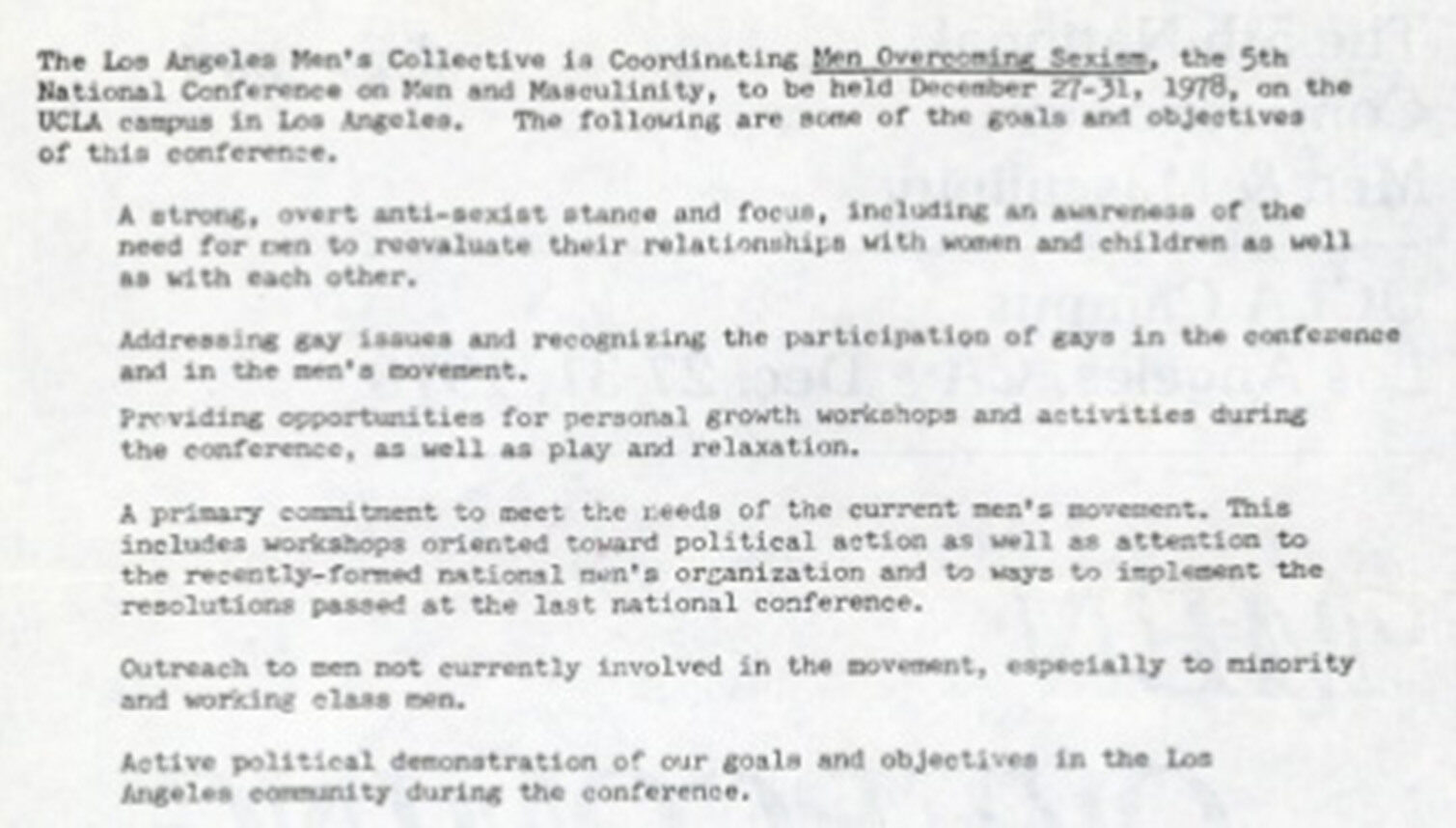The Men's Movement
The 1960s and 1970s saw Second Wave Feminism sweep through the Western World, engaging women with issues such as sexuality, the workforce, domestic abuse, the family and reproductive rights. And whilst feminists were debating with themselves and the world, there were small collectives of men who wondered what this new definition of femininity meant for their understanding of masculinity.
In reaction, these men gathered and began discussing and shaping how the role of men fit into this new world, and, in some cases, how they could complement the feminist movement. The result of this for some was the development of the Male and Masculinity Conference, the first of which was held in 1975 by a small group of men in Knoxville, TN. The early years of this organisation can be seen in our upcoming collection entitled Gender: Identity and Social Change. Over the next few years, a loosely organised collection of men attended an annual conference, before a National Council was elected in 1982, under the now titled National Organisation for Changing Men. It was renamed the National Organisation for Men Against Sexism in 1990, and continues to hold a Men and Masculinity conference.
From the beginning, the philosophy of the collective was anti-sexist, pro-LGBT and anti-racist, whilst emphasising traditional male sex role restrictions. In this publication from the fifth conference (seen below), the principles are outlined along these lines, and the discussions that began around these gatherings were focused on how to challenge men’s roles in the traditional patriarchal society, with a pro-feminist slant. However, as the feminist movement developed outside of the organisation, there was a reaction within it, and within other men’s groups. By the late 1970s, anti-feminist men’s groups were being developed. Unlike NOMAS, these groups did not believe that men had suffered, but had also oppressed, under the patriarchy. They advocated that women had in fact benefited from the patriarchy, and in continuing feminism beyond the basic fight for suffrage, were oppressing men and insisting on a world where women were superior.

Handout from the 5th National Conference on Men and Masculinity in Los Angeles (1978), laying out the principles and aims of the gathering. From the Changing Men Collection at Michigan State University. © National Organisation for Men Against Sexism
In the last few years the men’s movement has developed and continued to react to the changing world. Whilst NOMAS works alongside others in an anti-sexist capacity and defines itself against the anti-feminist men’s rights collectives, it continues to work to further discussion surrounding traditional gender roles. The modern movement is a collection of anti-sexist, anti-feminist, and pro male development groups, who all act to explore gender roles, and the areas in which men can both grow and be supported. At its root, the movement’s focus is on masculinity, and what it means to be a man in the modern world. In the papers in this collection, these discussions can be seen in their early stages, and the developing reactions can be traced to the current day.
For more information about Gender: Identity and Social Change, including pricing, please request a demo.
Recent posts

Discover how the Mass Observation Project evolved through the 2010s. Explore societal trends, from climate change to digital shifts, revealed through module IV. Read how researchers and the public document everyday life in a changing world.

This blog spotlights Foreign Office, Consulate and Legation Files, China: Section II's material which documents China's relations with Britain, and key events such as the beginning of the Xinhai Revolution that ended centuries of imperial rule. It features correspondence between London and British diplomats stationed in Weihaiwei, the first foreign concession in China.
